Russia’s comprehensive tobacco control law leads to change and progress
By Becky Bavinger, Bloomberg Philanthropies Public Health team
The last time I was in Russia, over 10 years ago, I was a college student and couldn’t afford to go into many restaurants and clubs. But even if I could have paid for a meal, I wouldn’t have wanted to sit in the smoke-filled room for long. Similar to many American cities at the time, there were no smoke-free laws and a “designated smoking room” was just a suggestion.
So you can imagine my surprise when in 2013, Russia passed one of the best comprehensive tobacco control laws in the world, including smoke-free public places. And even more surprising when we learned from our tobacco control partners that the law was being implemented with over 90% compliance by the restaurants/hospitality industry. This is in a country where the Global Adult Tobacco Survey estimates nearly 40% of the population, or 44 million people, smoke tobacco!

February 23rd marks a very important holiday in Russia. Many will know it as the Defender of the Fatherland Day — but the public health community celebrates the day because it’s the anniversary of the passage of the tobacco control law. As a coincidence, our tobacco control partners hosted a retreat in Moscow that week, and arranged an implementation tour for me around the city. My first day in Moscow, I wandered over to Red Square, where an outdoor holiday festival was being hosted by a large department store in Russia. Amidst the tinsel-decorated trees and tea stalls, there was a smoke-free sign, and not one person was smoking in the square!

An illuminated tobacco box at the supermarket.
Aside from smoke-free public places, the law also entails a point-of-sale ban, so that tobacco products are hidden from plain view at shops. In reality, it means that cigarettes are sold at the cash register in a black box, which is illuminated at the customer’s request to display the available brands.

Here you can see that the cashier has access to pull cigarette packs out of the box as they’re requested, but the law’s intent is to prevent exposure of cigarette marketing, which is a proven measure to reduce tobacco use.
A price list for cigarettes is posted on the side of these machines. Consumer prices for tobacco products are still extremely low in Russia, with little tax applied, and our partners are continuing to advocate for an increase in tobacco taxation. For example, this pack of cigarillos is only 77 rubles, about $1.00.

Some of the smaller shops don’t have these tobacco machines, but still obey the law by keeping cigarettes hidden from plain view and only bring them out upon request by the customer.
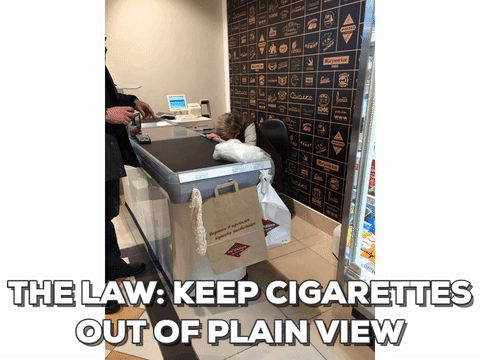
During a 3 hour tour of the city, we only noted one violation of the point-of-sale ban. Here you can see that the tobacco machine has been kept open for viewing at all times.
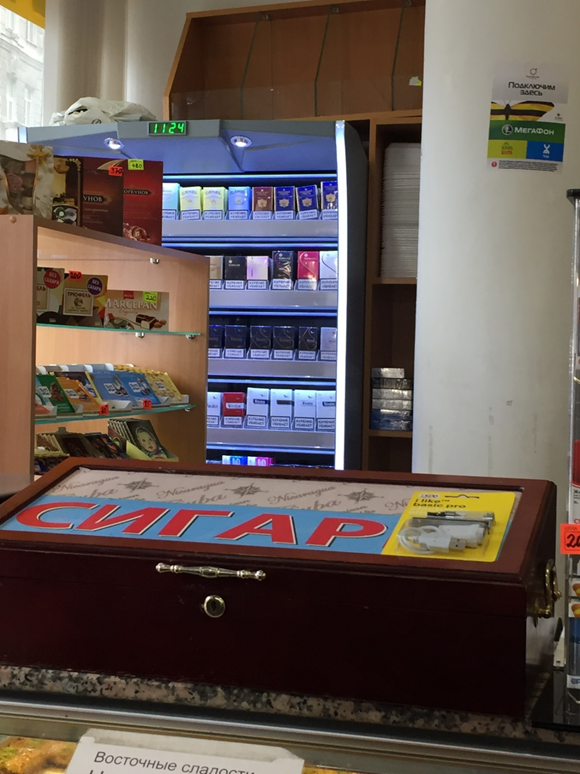
Even on a cold February night, restaurants obey the law by requiring their customers to smoke outside.

The smoke-free law doesn’t apply just to restaurants and bars, it also applies to public transportation — including the trains. After our meetings in Moscow, I took the train to St. Petersburg and enjoyed fresh air along the way.

In St. Petersburg, I saw more “makeshift” tobacco machines, like this one that uses a curtain to hide the cigarette packs. But it’s still keeping to the spirit and letter of the law.

The law prevents selling tobacco products at kiosks, but in St. Petersburg the kiosks have gotten around that provision by adding a small step and “door,” which qualifies them as a store. This is a technical loophole that is not keeping to the spirit of the law, and our partners have to be vigilant in monitoring the situation.
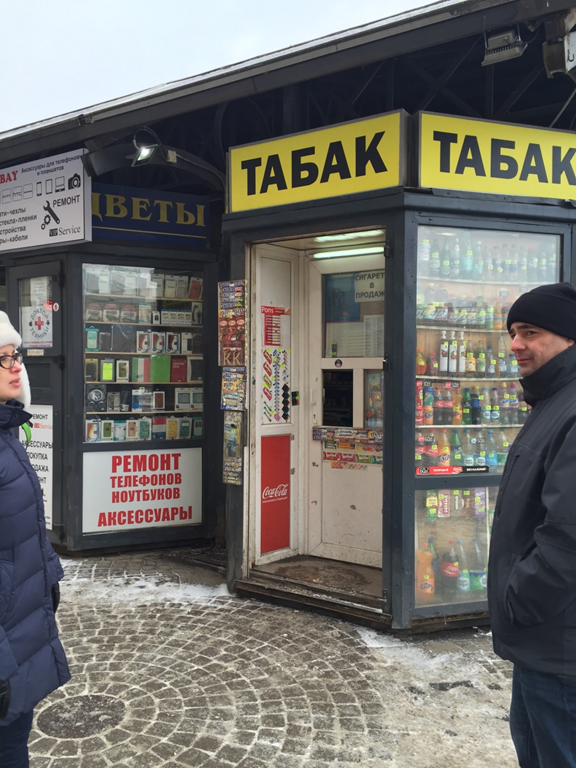
Another variation of the black tobacco machine is this shelving unit that customers can open and close on their own. As long as the store ensures it’s closed when customers aren’t using it, this type of storage is allowed under the law.
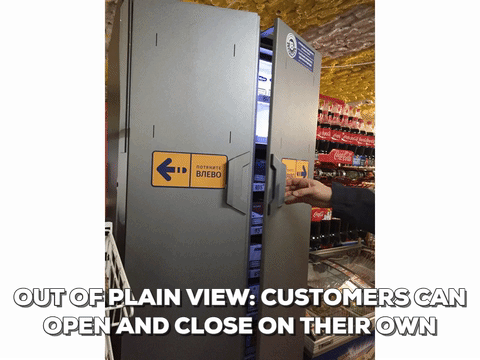
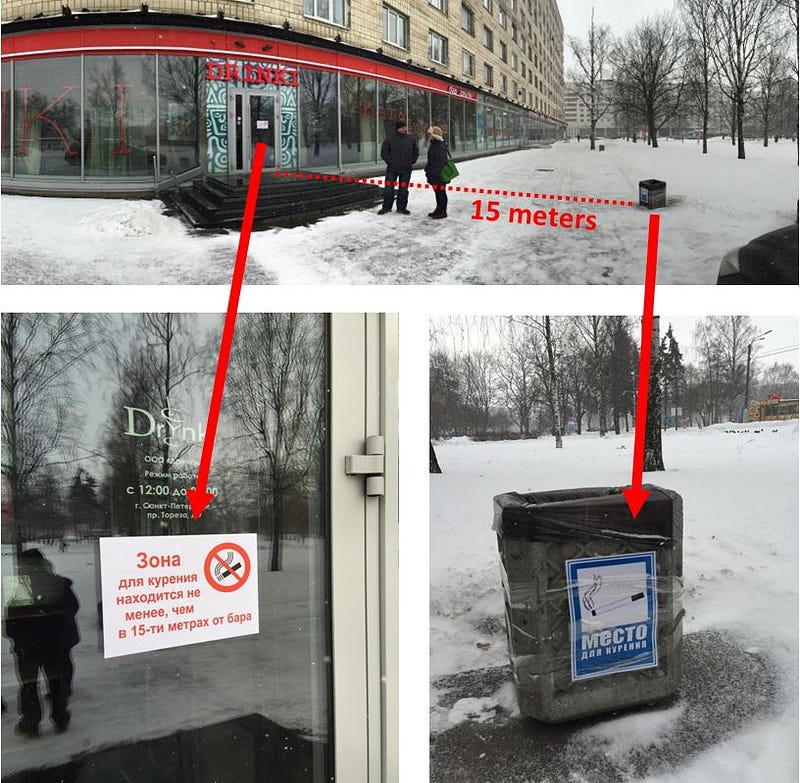
With that, we concluded our implementation tour at the Hermitage, which is also smoke-free! The goal now is to show the impact of the law by measuring tobacco prevalence after the law’s implementation and comparing it with the previous results from Russia’s Global Adult Tobacco Survey. We expect results in early 2017, and until then our partners will continue to support the government in maintaining enforcement of the law.

Learn more about Bloomberg Philanthropies’ approach to fight global tobacco use.